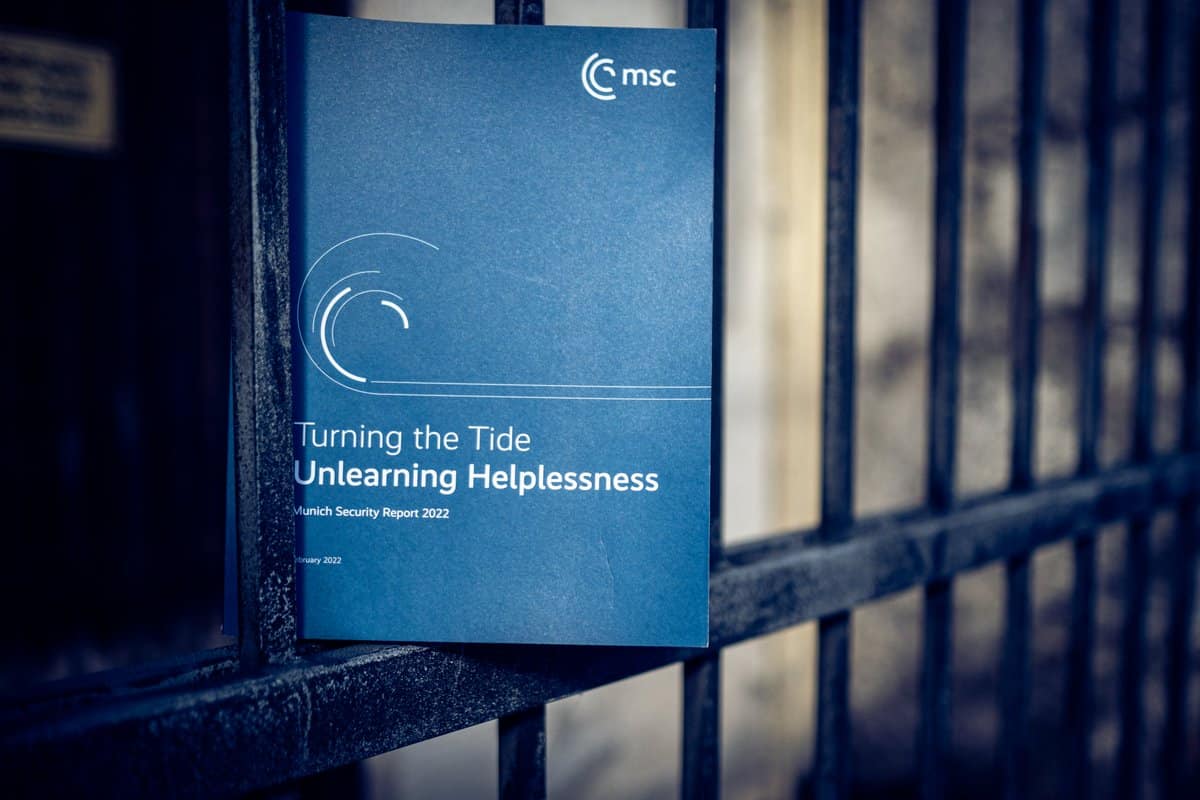The Munich Security Conference (MSC) is a forum for debating international security policy. It acts as a venue for diplomatic initiatives to address the world’s most pressing security concerns by bringing together heads of state and government, ministers, leading figures of international and non-governmental organizations, as well as high-profile representatives of industry, media, academia, and civil society.
In parallel, it publishes the Munich Security Report and several thematic briefs that provide analysis and recommendations on current and future risks. The 2022 edition explores the emergence of a sense of “collective helplessness” in the face of many global challenges. It stimulates the debate on how to overcome these crises. The argument in the Munich Security Report 2022 is that societies can suffer from learned helplessness, feeling unable to overcome the challenges they are facing. Moreover, it warns that this sense of helplessness could lead to a self-fulfilling prophecy process and prevent the world from addressing the most pressing issues at the time.
Focuses on security challenges in:
- Afghanistan
- Sahel region
- Horn of Africa
- Eastern Europe
The authors also highlight the risks of dependencies in the supply chains of critical technologies and growing inequality. Data from the Munich Security Index 2022 shows concern about risk among societies in the G7 and BRICS countries. For this reason, the index prepared a survey of 12,000 people globally to provide annual insights into how significant countries view risk. The results are used to measure and compare perceptions over the world. Combines five metrics along with the possibility to evaluate how risk perceptions evolve:
- overall risk
- potential damage
- expected trajectory
- perceived imminence
- feelings of preparedness
The publication targets an expert audience as well as the interested public. Since its inception in 2015, the Munich Security Report has compiled data analyses and maps to illustrate current security challenges.




